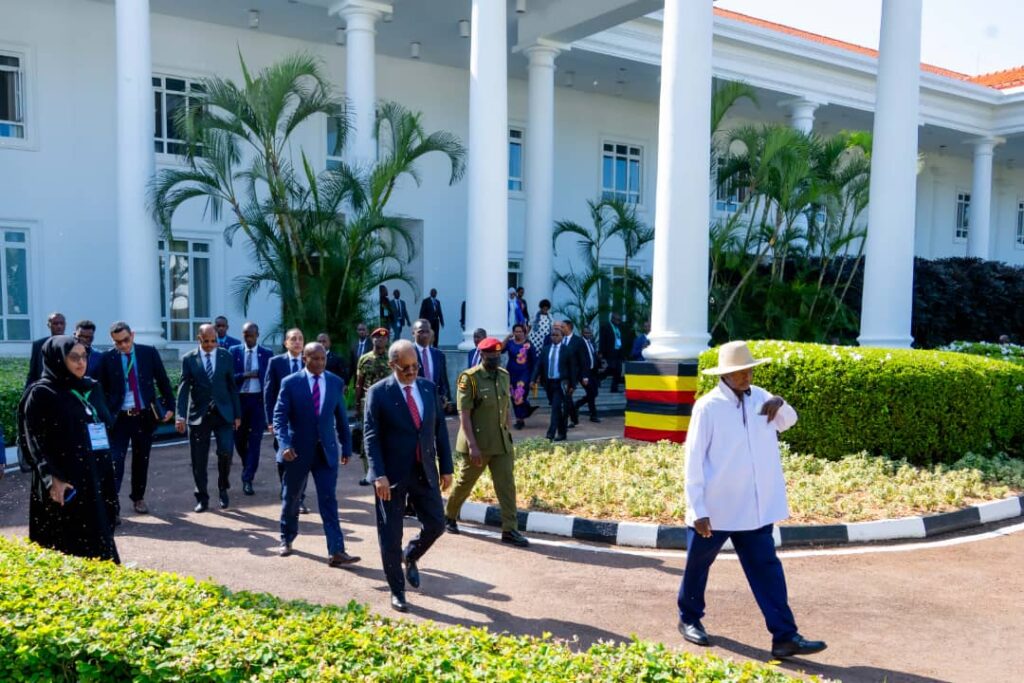
KAMPALA.
President Museveni Friday reiterated the urgent need for African solidarity and increased financial support to Somalia, as a key pillar for sustainable peace and stability in the Horn of Africa.
The President made the remarks while chairing the Extraordinary Summit of Troop-Contributing Countries (TCCs) to the African Union Support and Stabilization Mission in Somalia (AUSSOM) at State House, Entebbe.
The high-level summit brought together leaders and representatives from across the African continent to deliberate on the future of Somalia’s security, the transition of the African Union peace mission, and the broader regional efforts to counter terrorism and restore stability.
“We need to assist Somalia to get out of these problems. As you have heard, more money is needed to sustain the stabilization mission,” President Museveni said, urging African states and partners to do more to support Somalia’s peace building efforts.
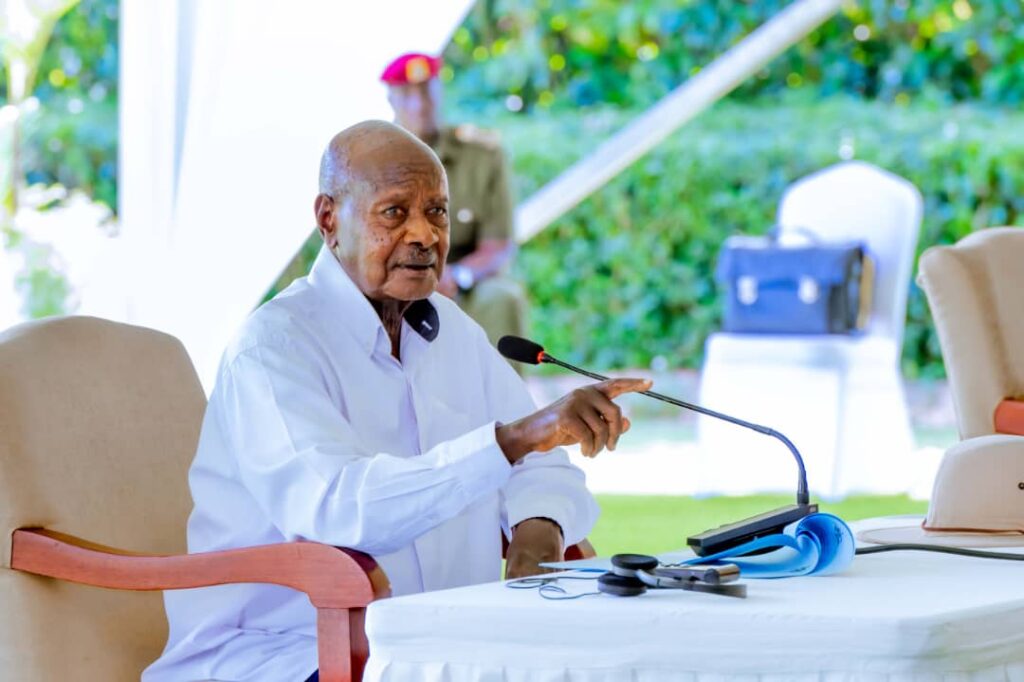
Reflecting on Africa’s own struggles with dictatorship and instability, President Museveni invoked the spirit of Pan-African solidarity that once aided Uganda during the fight against Idi Amin.
“It is solidarity which helped Africa come to where we are today. When we had a problem with Idi Amin, we were supported by our brothers from Tanzania and Mozambique,” he said.
President Museveni further delved deep into the ideological foundations of Uganda’s post-conflict recovery, development and national unity.
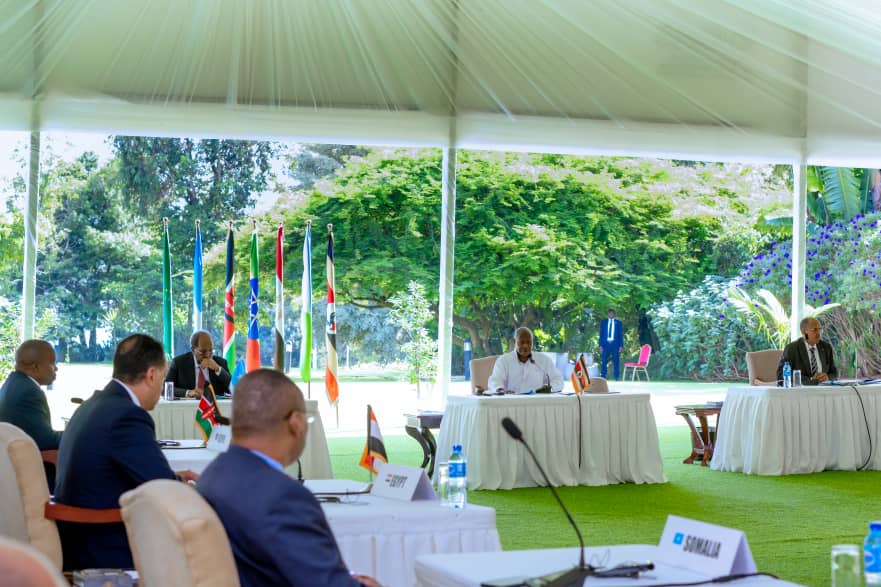
He emphasized the four guiding principles of the National Resistance Movement (NRM): Patriotism, Pan-Africanism, Socio-Economic Transformation, and Democracy.
He cautioned against the politics of identity, sectarianism, and clan divisions, warning that these were dangerous distractions that could derail Africa’s progress.
“If I was to play the politics of identity as a Munyankore, I would first be an enemy of the Banyankore before becoming an enemy of Uganda,” President Museveni said, stressing that prosperity in Uganda depends on mutual interdependence among its diverse communities.
Commenting on Somalia’s challenges, President Museveni criticized the underfunding of the Somali National Army and the African Union mission, describing it as an “under dose” that had prolonged the country’s instability.
“Al-Shabaab is a weak force. If they had a healthy cause and support, they would have overrun Somalia by now. What has prolonged their existence is the small, under-supported Somali army and external forces,” he said.
He proposed the formation of a volunteer-based national army in Somalia, inspired by Uganda’s experience during its liberation struggle.
President Museveni recounted how Uganda, with the support of Tanzania and Mozambique, raised an effective force of 9,000 troops from a core of just 28 trained cadres, between December 1978 and April 1979, without the luxury of salaries.
He stressed that victory came from ideological clarity, volunteerism, and commitment to a just cause not merely from funding.
“Somalia and its supporters must stop the under-dosing. We need enough, well-trained and well-equipped Somali soldiers or enough, properly equipped external forces. With adequate funding, Uganda is ready to contribute more troops,” he said.
President Museveni also thanked all summit attendees for their continued commitment to African unity, peace, and development.
On his part, H.E Hassan Sheikh Mohamud, the President of the Federal Republic of Somalia expressed deep appreciation to President Museveni and the people of Uganda for their warm hospitality and steadfast support toward the stabilization and recovery of Somalia.
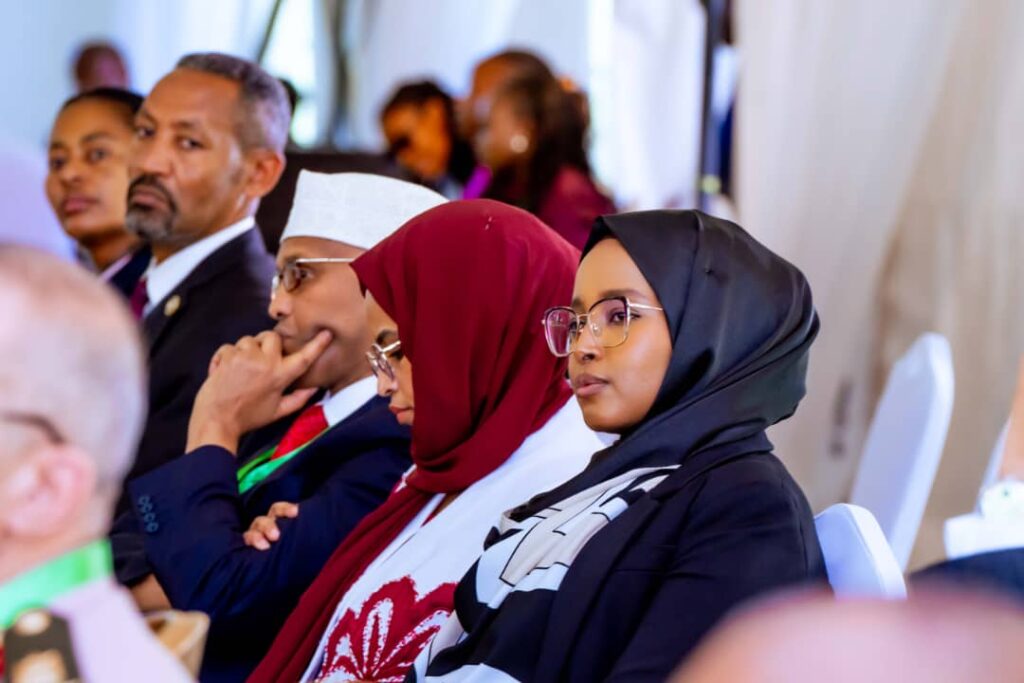
The Somali leader acknowledged the critical role Uganda and other African Union troop-contributing countries have played in the fight against terrorism in Somalia.
“I begin by thanking President Museveni for the warm welcome and generous hospitality. I also extend heartfelt appreciation to the troop-contributing countries for their commitment to the African Union mission in support of Somalia,” he said.
The Somali President commended the collective success achieved so far in combating Al-Shabaab and acknowledged that, although progress has been made, much more remains to be done.
“Together, we have accomplished great successes in the fight against Al-Shabaab. Our sacrifices are not in vain. The support we’ve received ranging from humanitarian access to training Somali security forces has been critical to saving lives and restoring hope in our country,” he noted.
H.E Mohamud also stressed that without the intervention of AMISOM and now AUSSOM, Somalia would not have reached its current level of stability.
Highlighting progress on the political front, the President said Somalia has made strides in rebuilding trust between member states through continuous dialogue, which has led to consensus on key national issues, including security structures and an electoral model.
“Our ongoing electoral exercise, involving over five million people, is a significant milestone in entrenching democracy and building a stable and prosperous Somalia,” he said.
However, the Somali leader warned that the fight against Al-Shabaab is at a critical stage. He called for renewed regional and international commitment, emphasizing the need to build the capacity of Somali national security forces and ensure sustained funding.
“We face serious challenges, but the gains we’ve made show that victory is possible. We must now agree on a clear roadmap for financing and sustaining our efforts. Somalia is committed to working with all stakeholders to implement strategic security frameworks and eliminate terrorism from our country,” he added.
He also pledged Somalia’s continued collaboration through the Contact Group on the Somali Transition (CGST), chaired by President Museveni, which he said would be instrumental in supporting the Somali Security and Development Blueprint (SSADB).
“As we move into the final push to eradicate Al-Shabaab, we must unite with renewed determination. The success of this initiative will not only secure Somalia but also contribute to the peace and security of the region,” he said.
President Mohamud also urged AU member states to continue pledging full support for Somalia and its vision for a peaceful and prosperous future.
The Chairperson of the African Union Commission, H.E. Mahmoud Ali Youssouf, also expressed profound gratitude to President Museveni for his warm hospitality during the Extraordinary Summit.
“On behalf of the African Union Commission, I extend heartfelt thanks to President Museveni and the Ugandan people for their gracious welcome,” he said.
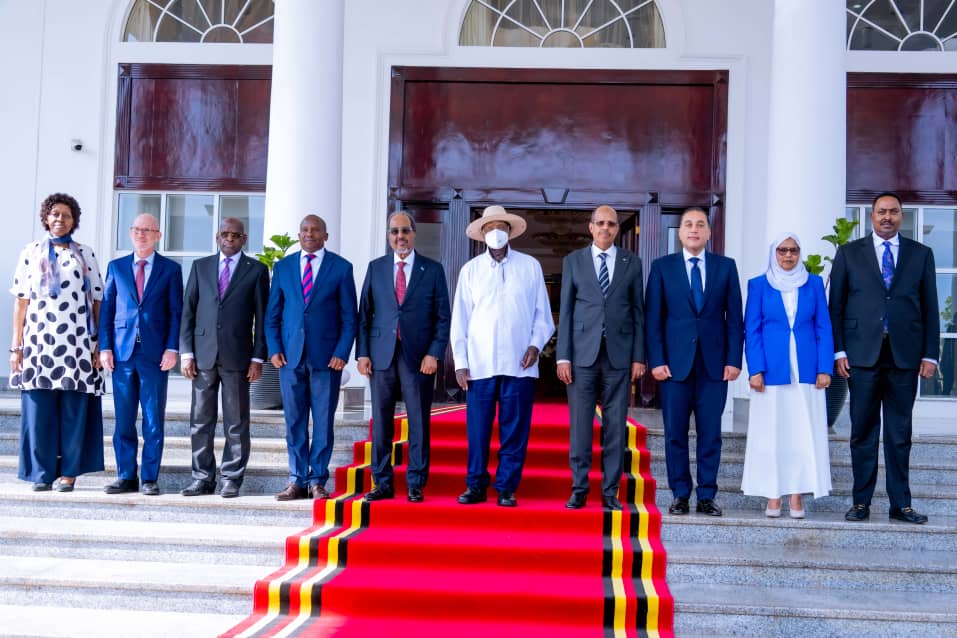
He paid tribute to all troop-contributing countries for their sacrifices in the pursuit of peace in Somalia, honoring those who have lost their lives in the line of duty.
“We salute the bravery of our forces and mourn the heroes who have fallen in the quest for a stable Somalia,” he stated.
H.E Youssouf acknowledged the significant progress made in combating terrorism, particularly against Al-Shabaab, but emphasized that challenges remain.
“While notable strides have been achieved, recent setbacks remind us of the persistent threat posed by terrorist groups. It is imperative that we intensify our efforts to neutralize these threats,” he urged.
He called upon the Federal Government of Somalia to expedite the force generation process to strengthen the Somali National Army, ensuring they are adequately equipped to maintain security and stability.
“Accelerating the development of Somalia’s security forces is crucial for sustaining the gains made and for the country’s long-term peace,” H.E Youssouf.
The summit was also attended by H.E Abdoulkader Kamil Mohamed , the Prime Minister of the Republic Djibouti, H.E Prof. Kithure Kindiki, the Deputy President of the Republic of Kenya , H.E Dr. Mostafa Madbouly, the Prime Minister of Egypt , H.E Eng. Aisha Mohammed Mussa , the Minister of Defence of the Federal Democratic Republic of Ethiopia, Dr. Workneh Gebeyehu, Executive Secretary of the Intergovernmental Authority on Development (IGAD), among others.